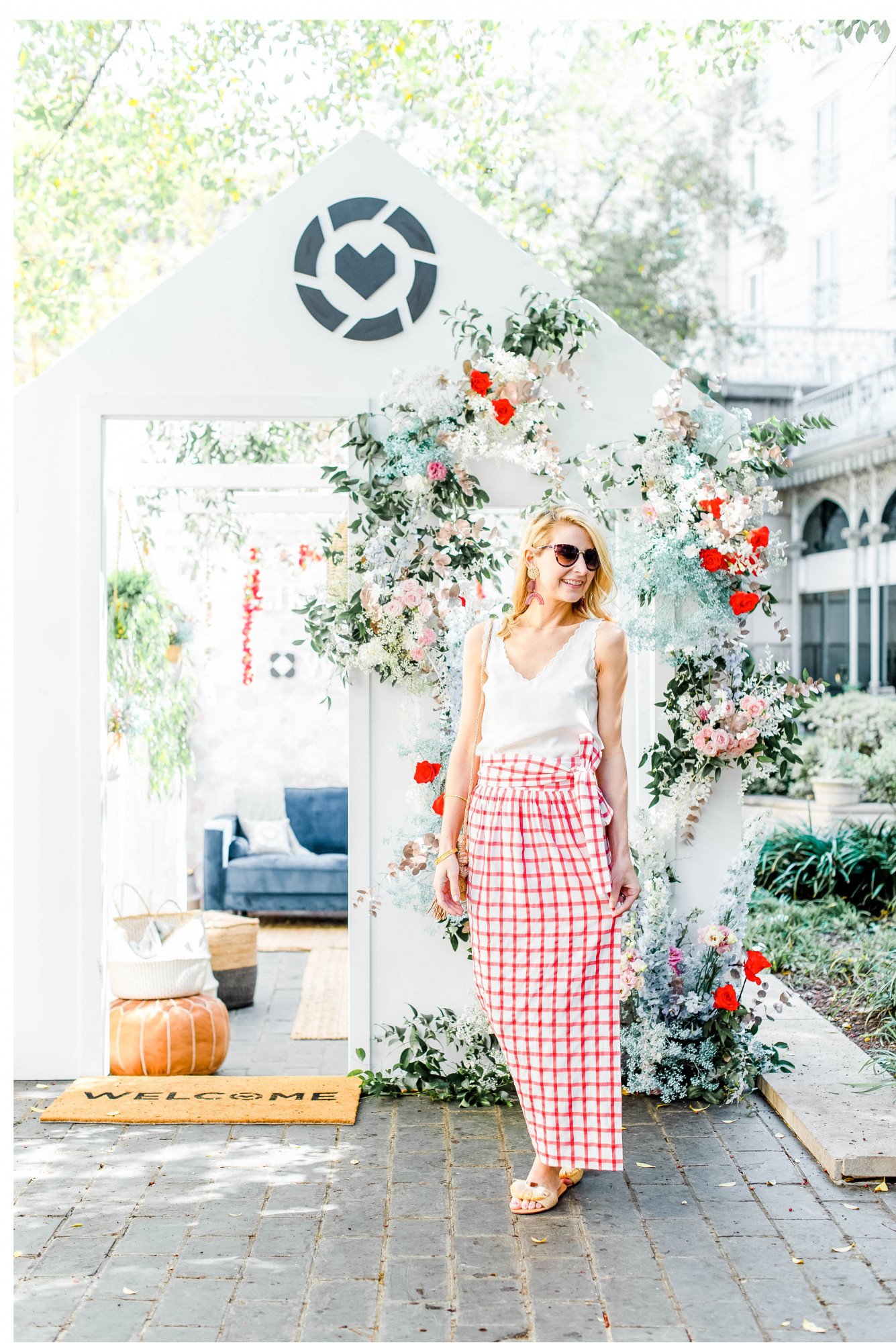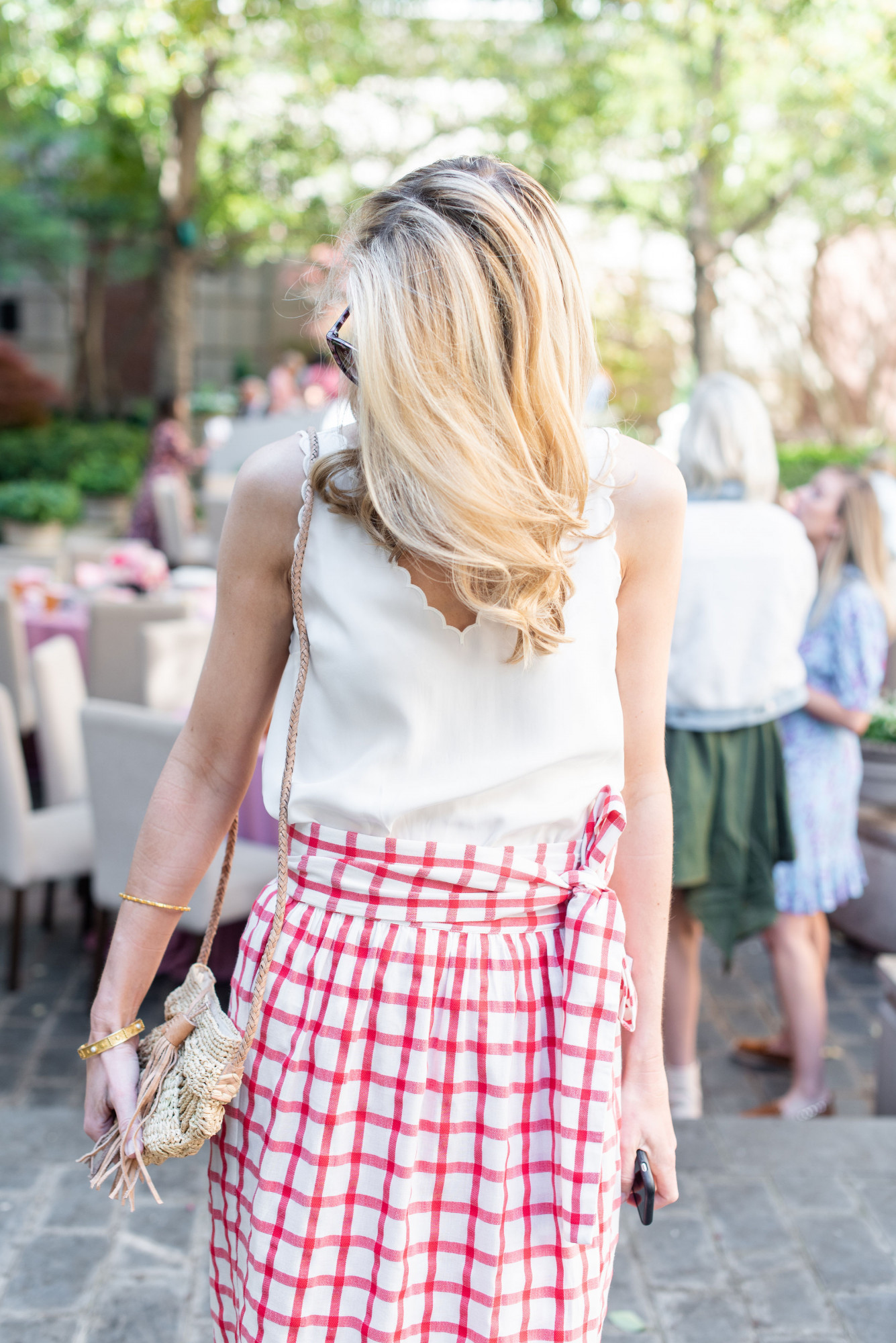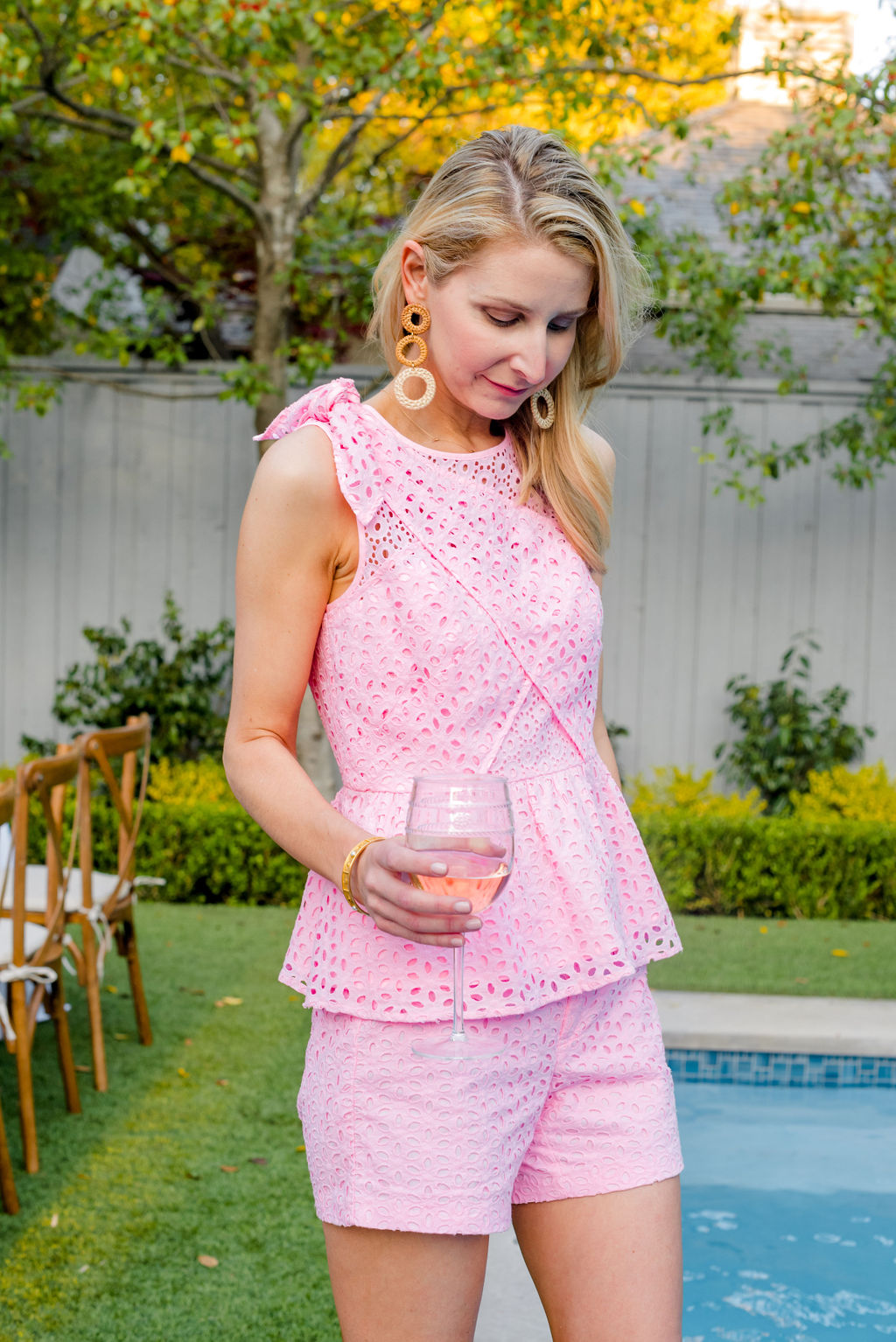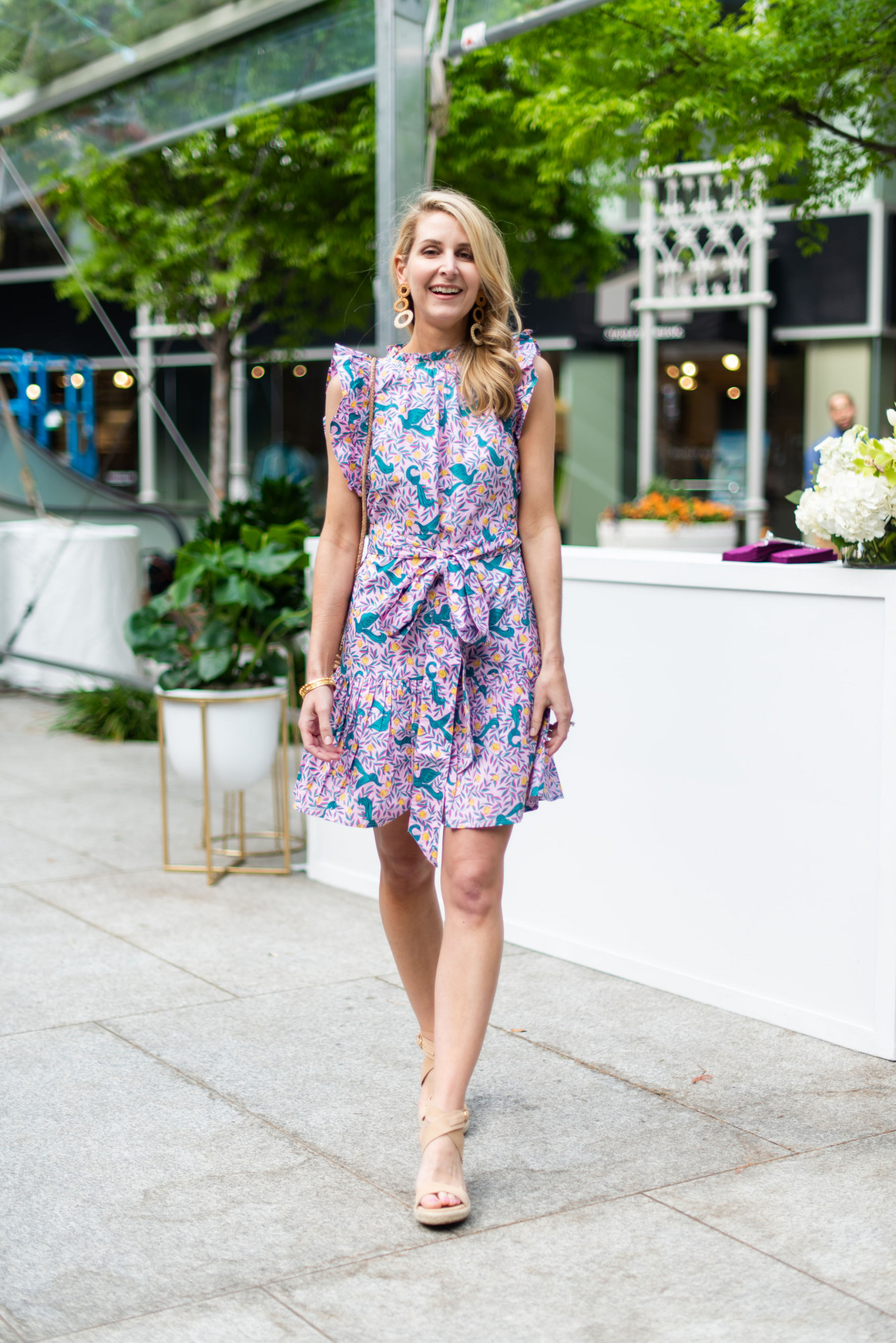Many DoSayGive readers have a small brand or work for a small brand. And they want to know what it looks like to work with an influencer and if it’s right for their business. I receive so many questions from real estate agents, clothing boutique and Etsy shop owners, spa managers and others regarding the process of working with an influencer, the terminology, and other “ins and outs” of the industry. I realize DoSayGive is not a fit for every business but I still want to help these readers out. So today begins a two part series!
If this post doesn’t apply to you, you still may be interested in the behind the scenes info below. Otherwise, you may want to browse our Valentine’s gift guides here.
1. What is an Influencer?
Let’s start with the basics! According to Wired magazine, an influencer as “someone with the power to affect the buying habits or quantifiable actions of others by uploading some form of original—often sponsored—content to social media platforms.” They truly influence the decisions of their followers.
2. Lee, are you an influencer?
By default I am. But I would define myself more as a lifestyle brand owner and content creator. DoSayGive creates content on our website and not just social media. Because people use many of these phrases interchangeably (influencer, blogger, content creator, Instagrammer) it’s important to know who exactly you are working with and what you will be getting. For example, an influencer may have content on Instagram and not on other channels. Your brand’s goals will determine if that’s a good fit or not. And tomorrow’s post will give you more questions to ask to determine if an influencer is a good fit for your brand.
top | skirt | bag | earrings (similar)
3. So What is Influencer Marketing?
Founder of Reward Style, Amber Box, brilliantly used the term “BFF Marketing” to describe influencers. Unlike traditional print advertising, influencers are real people often in the same stage of life as many of their readers.
Whereas ten years ago magazines were the source of much info on home, beauty, and style, today consumers are looking to their Insta BFFs for recommendations on these things. It’s natural to want to know where they got their car seats or what their lipstick color is just like you would get this info from your best friend.
Influencer Marketing = BFF Marketing.
4. Why should my small business work with an influencer?
Working with the right influencer can increase overall brand awareness and/or drive sales. Back to the magazine example: consumers are more influenced to purchase a piece of jewelry recommended by their Insta BFFs rather than a pretty spread in In Style magazine.
A 2018 study found that 86% of marketers and advertising agencies used influencer marketing. Of those, 92% found the practice to be useful for effective brand outreach. From Forbes, “Recent market research finds that social media influencers will continue to be an invaluable trust-building mechanism that can be tapped to establish brand identity. In the new decade, expect to see influencer marketing surge, with an increasing share of marketing strategy budgets allocated to this effective outreach method.” This Forbes article also lays it out very well.
Bottom line: it may not be for every business but it’s definitely something to consider in your overall marketing strategy. The second part of this series will help you flesh that out.
5. Should I expect to pay an influencer?
I would be hesitant to work with anyone who doesn’t charge for their work, no matter the industry.
If an influencer is charging for her content creation (“sponsored”) that means she is treating it as a business instead of a hobby. And you are protecting your own business working on a professional level, especially when it comes to deadlines, contracts, and quality of work.
Moreover, if an influencer is charging for her work it is because she most likely creates value for the brands with whom she works.
As a brand owner, you have to determine if her rate will yield a strong ROI for your business. (See tomorrow’s post for questions to ask!)
Side note: big clothing and home brands know all of this as most now have line items in their annual budgets just for influencer marketing (something that wasn’t the case two years ago). But this post is about educating the smaller brands!
top | shorts | earrings (similar)
6. Can’t an influencer just post about my business in exchange for product?
What looks like a carefree photo on Instagram took a lot of time. Styling, photography, editing, and writing are just some of the things that go into one tiny square on your feed. If you hired a stylist, photographer, and copywriter to shoot, style and write about your products would you pay them? An influencer or content creator does all these things and more!
Successful influencers also have many professional expenses (many have teams of people working behind the scenes) and cannot pay those with free handbags and makeup. Can you imagine asking a marketing firm to provide their services in exchange for your products. They would laugh in your face.
Now there are many newer influencers who probably work on gifting as they are getting started or people that just do it as a hobby. (Meaning they spend hours creating content in exchange for clothes or product.) See question#5 for my response to this.
And to them I say: as soon as you are creating value for a brand then you should be charging for your time. Otherwise, you are being taken advantage of! You are worth it (your family is worth it) and your time is valuable. Don’t be shy about treating your Instagram feed as a business. And don’t apologize for it either.
7: What about including my products “organically”?
In the influencer world, the word “organic” means a brand will gift an influencer product with no strings attached. The different between organic and sponsored content (which I discussed above) is that a brand is not asking for you to create dedicated content about their product in exchange for product.
For example, a brand may ask an influencer if she wants to test out their new beauty product or consider a toy for a gift guide. (We try out many things that never make it to our gift guide.)
If the gifted products make it into a blogger’s outfit or gift guide, it is understood (and a courtesy) to tag the company who gifted the items. Many times you will see the hashtag #gifted in the caption.
If you are a small brand without a big budget, you can definitely ask an influencer if they accept product to consider for organic placement. Or ask if you can send them you some products to try out.
But please note: sending an influencer product does not guarantee placement. Influencers can be inundated with free products. As much as they might love your product – they probably love a lot of products – there is only so much time in the day to post about things. And priority is understandably given to paying sponsors.
On a personal note, many professional influencers have steered away from accepting things organically. One reason is that we have to count the products as income on our taxes. Yes, anything that we are gifted has to be reported to the IRS! So really we are losing money on these gifted items – ha! Which is why I don’t often do it.
8: I don’t want to pay someone to write about my product. Shouldn’t they just do it because they truly love it and not because I am paying them?
Brands do not pay influencers to like their products. They pay to create content about them. Whether that’s an Instagram post, an Instagram story, or a blog post.
For example, we include a lot of great gifts in our gift guide. But if one of those brands wants us to create unique content about their product for Instagram or our website – such as a a beautiful styled image showing how to use it or wrap it – that would be sponsored content.
Now this must be said: An influencer should not accept a sponsored collaboration unless she truly likes the brand or thinks her readers will. We’ve ALL been turned off by influencers who only wear Gucci and Prada but all of a sudden are touting how great Walmart is in a sponsored post. Influencers who abuse the trust of their readers and sponsors, and share about things that don’t align with their brand, have and will be weeded out. I’ve seen it happen again and again.
Because once you lost your readers’ trust, you are done.
9: How do I approach an influencer?
First, if you are genuinely interested, take the time to send a professional email. You can find their email usually on their Instagram profile. I personally do not take Direct Message on Instagram as seriously and often miss them.
Sometimes an influencer will be managed by an agency or have someone on their team who manages collaborations (Tiffany in my case!) and will refer you to the proper person.
Second, ask the influencer for her media kit to let her know you take her business seriously. Her media kit will tell you more about the demographic of her followers, page views, etc. Sometimes it will have rates on the kit; other times you will need to ask for her rates separately.
Third, ask the influencer a lot of questions to make sure they are a good fit for you brand and will yield a good ROI. (Questions will be in part two of this series tomorrow!).
10: Will a PR firm manage influencer collaborations?
Many times, yes. PR firms are traditionally about organic product placement, but more and more seem to be offering influencer management services. If so, I would ask what that entails: it is for product placement, sponsored content or both? And if they manage sponsored content, does their fee include whatever it costs to pay influencers for that styled content? (Probably not but you need to know know how to budget accordingly.)
I often receive emails from PR firms asking me to create sponsored content about their client’s products, but their client doesn’t have any extra budget to pay for the content. I had one firm ask if I would create a professionally photographed Mother’s Day tea time blog post with a beautiful table setting. Something that would take a good 5-7 hours to prep, style shoot, and write – not to mention the cost of the props and photographer. But they had no budget, only product to gift. See #6 for why established influencers can’t do this.
11: I am setting up an affiliate program for my business so I can pay influencers that way. Is that a good idea?
I receive an email nearly everyday asking if I want to join a clothing brand’s affiliate program. It is exhausting and honestly so much work to try to keep up with.
Big brands like Nordstrom understand this: established influencers want to be paid for their content up front. Why? One reason is that consumers don’t always use the affiliate link.
For example, a reader might see a product on an influencer’s Instagram feed but then purchase it on their computer a few days later. Or vice versa. They did not use the influencer’s affiliate link (so the influencer did not receive a commission) but the influencer’s content is the driving force behind their purchase.
Joining a larger affiliate program like Reward Style or Shop Style is harder to do but it is more widely used among established influencers. But even brands like Nordstrom and Walmart still pay for sponsored content on top of affiliate links used in content.
Having said all this, I think small affiliate programs could be great for those Instagrammers who see their Instagram feed as a hobby. Perhaps for newer influencers or a mom with a beautiful feed and an active following would love to try to make a little money off clothes for her or her children.
Has this been helpful? Part two has even more information! I will discuss:
- Specific questions to ask an influencer to determine if they are a good fit for your brand.
- How to tell if an influencer’s following in inflated or legit.
- How much to budget for influencer marketing.
Read part 2 here!
Sign up for DoSayGive emails so you don’t miss part two! And let me know what other questions you have?
Photos: Audrie Dollins








Hey Lee,
Thanks so much for giving some insight into how to work with influencers. As a photographer, this is really helpful info! I really appreciate you taking the time to share!
I am so glad it was helpful! Please share!